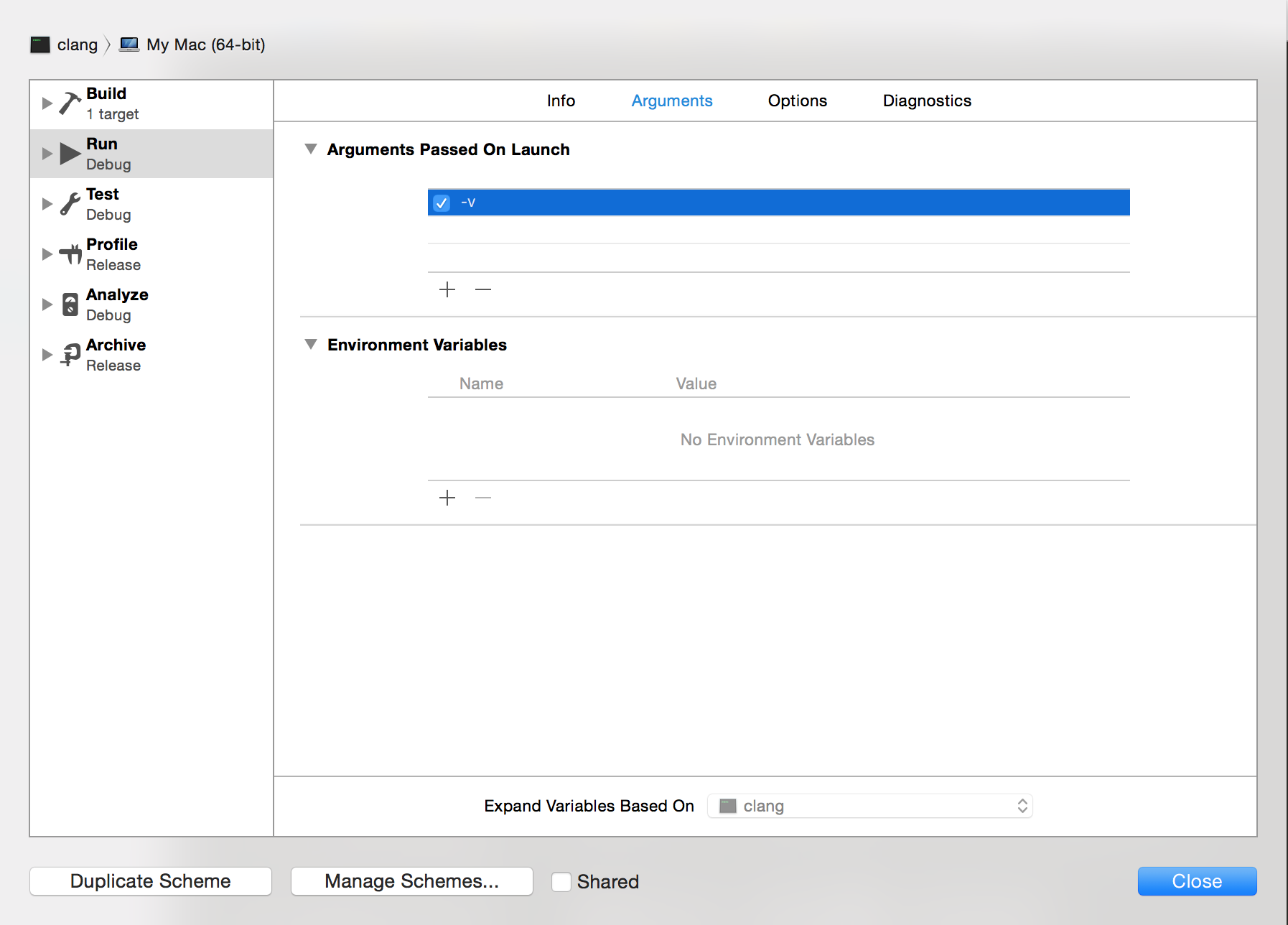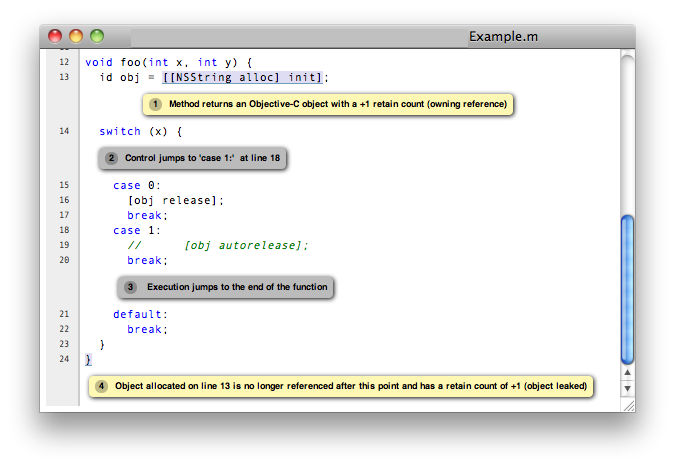0 Respones to 'How to Install Clang for Mac OS X' Post a comment. Next Article Home. Subscribe to: Post Comments (Atom) Popular Posts. How to Mount EXT4 Linux Partition on Mac; How to Install Clang for Mac OS X; Wireshark Troubleshooting on Mac OSX Snow Leopard; MAC Changer. Clang may already be installed on your Mac. To verify that it is, open a macOS Terminal window and enter the following command: clang -version. If Clang isn't installed, enter the following command to install the command line developer tools: xcode-select -install Create Hello World. Clang 8.0.0 for OS X 10.11 and higher, release build for x8664, signed package, installs into /usr/local/clang8. To be used with El Capitan builds of R 3.7.0 and higher. It is an installer version of the official LLVM released binaries only modified to use the path above. Requires Mac OS X 10.4 (Tiger) or higher for 32-bit R and Mac OS X.
- Install Clang On Windows 10
- Clang For Mac Os Versions
- Clang For Mac Os 10.13
- How To Install Clang
- Clang Compiler Download
The Clang Static Analyzer is a source code analysis tool that finds bugs inC, C++, and Objective-C programs. Currently it can be run either from the command line or if you use macOS then within Xcode. Wheninvoked from the command line, it is intended to be run in tandem with a buildof a codebase. The analyzer is 100% open source and is part of the Clang project. Like the rest of Clang, theanalyzer is implemented as a C++ library that can be used by other tools andapplications. DownloadMac OS X
Other PlatformsFor other platforms, please follow the instructions for building the analyzer from source code. | Viewing static analyzer results in a web browser |
What is Static Analysis?
The term 'static analysis' is conflated, but here we use it to meana collection of algorithms and techniques used to analyze source code in orderto automatically find bugs. The idea is similar in spirit to compiler warnings(which can be useful for finding coding errors) but to take that idea a stepfurther and find bugs that are traditionally found using run-time debuggingtechniques such as testing.
Static analysis bug-finding tools have evolved over the last several decadesfrom basic syntactic checkers to those that find deep bugs by reasoning aboutthe semantics of code. The goal of the Clang Static Analyzer is to provide aindustrial-quality static analysis framework for analyzing C, C++, andObjective-C programs that is freely available, extensible, and has a high quality of implementation.
Part of Clang and LLVM
On the other hand, Clang/LLVM is natively a cross-compiler, meaning that one set of programs can compile to all targets by setting the -target option. That makes it a lot easier for programmers wishing to compile to different platforms and architectures, and for compiler developers that only have to maintain one build system, and for OS. Static-linked versions of clang-format for Linux, Mac OS X and Windows, available in AUR as clang-format-static-bin - muttleyxd/clang-tools-static-binaries.
As its name implies, the Clang Static Analyzer is built on top of Clang and LLVM.Strictly speaking, the analyzer is part of Clang, as Clang consists of a set ofreusable C++ libraries for building powerful source-level tools. The staticanalysis engine used by the Clang Static Analyzer is a Clang library, and hasthe capability to be reused in different contexts and by different clients.
Important Points to Consider
While we believe that the static analyzer is already very useful for findingbugs, we ask you to bear in mind a few points when using it.
Work-in-Progress
The analyzer is a continuous work-in-progress. There are many plannedenhancements to improve both the precision and scope of its analysis algorithmsas well as the kinds of bugs it will find. While there are fundamentallimitations to what static analysis can do, we have a long way to go beforehitting that wall.
Slower than Compilation
Operationally, using static analysis toautomatically find deep program bugs is about trading CPU time for the hardeningof code. Because of the deep analysis performed by state-of-the-art staticanalysis tools, static analysis can be much slower than compilation.
While the Clang Static Analyzer is being designed to be as fast andlight-weight as possible, please do not expect it to be as fast as compiling aprogram (even with optimizations enabled). Some of the algorithms needed to findbugs require in the worst case exponential time.
The Clang Static Analyzer runs in a reasonable amount of time by bothbounding the amount of checking work it will do as well as using cleveralgorithms to reduce the amount of work it must do to find bugs.
False Positives
Static analysis is not perfect. It can falsely flag bugs in a program wherethe code behaves correctly. Because some code checks require more analysisprecision than others, the frequency of false positives can vary widely betweendifferent checks. Our long-term goal is to have the analyzer have a low falsepositive rate for most code on all checks.

Please help us in this endeavor by reporting falsepositives. False positives cannot be addressed unless we know aboutthem.

More Checks
Static analysis is not magic; a static analyzer can only find bugs that ithas been specifically engineered to find. If there are specific kinds of bugsyou would like the Clang Static Analyzer to find, please feel free tofile feature requests or contribute your ownpatches.
I had no idea about LLVM(Low-Level Virtual Machine) until the day I installed Emscripten for learning asm.js and WebAssembly. Emscripten Compiler Frontend (emcc) uses Clang to convert C/C++ files to LLVM bitcode, and Fastcomp (Emscripten’s Compiler Core — an LLVM backend) to compile the bitcode to JavaScript.
Installing LLVM on Different Platforms
Windows
Get the pre-built binaries from LLVM download page.
After installing Clang for Windows, follow the Getting Started tutorial to compile a C file to LLVM bitcode file:
If you don’t have a hex editor installed, you can view the bc file with wasmcodeexplorer online.
LLVM bitcode reminds me of the Java bytecode. We can use lli to run .bc files directly.
Install Clang On Windows 10
According to the tutorial, run the program as follows:
However, where is lli? There is no pre-built binary available for download online except the source code. Therefore, we can download the LLVM source code and build it ourselves. The lli project is located at llvm-<version>toolslli.
Build the source code with CMake:
Once the build is done, we can find lli.exe under llvm-<version>buildbinDebug.
Raspbian
Install Clang:
Choose a Clang version:
Install LLVM
Can we run the bc file built with Clang for Windows on Raspbian? I got the following error message:
Not like Java bytecode, we cannot run one copy of LLVM bitcode directly on all platforms. But, we can compile the bc file to native code with Clang:
MacOS
Use Homebrew to Install LLVM:
Export the path to ~/.bashrc:
Compile hello.bc file on macOS:
Clang For Mac Os Versions
Emscripten vs. LLVM
The backend of Emscripten is called Fastcomp, which is Implemented as an LLVM backend. Its role is to convert the LLVM Intermediate Representation (IR) created by Clang (from C/C++) into JavaScript.
Assume we have a C/C++ library built with Clang, can we convert it directly to JavaScript file with Emscripten? I do hope so, but the fact is no.
Here is the reason:
The backend is still too new to be in the upstream LLVM repository. As such, builds from Linux distributions will not contain Fastcomp, and Emscripten will report an error if you try to use them.
Clang For Mac Os 10.13

How To Install Clang
We can compare the bc files that generated by emcc and Clang.
Clang Compiler Download
Because Emscripten has the gene of LLVM, Clang can compile the bc file built with emcc: